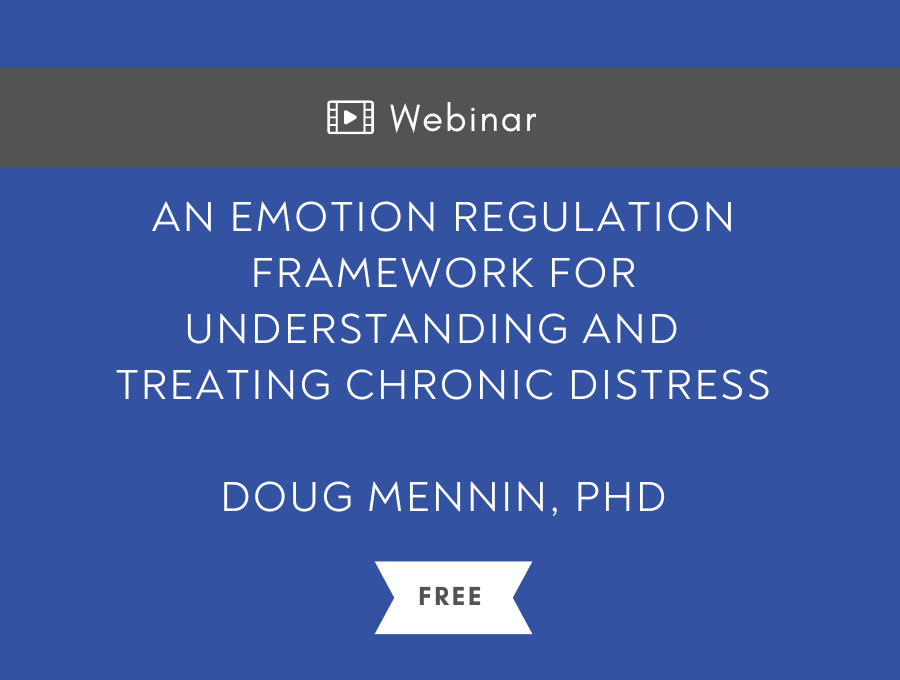
An emotion regulation framework for understanding and treating chronic distress – Free
About Course
Humans are especially adept at seeing problems in the future and trying to figure out how to fix them and looking into our past to see what went wrong in order to make better choices. The gift of humanity is in our ability to see where we've come from and what we can take from that experience to apply it to what may come and improve our standing. But, this gift can also be a curse. These tools can become traps. Worrying. Ruminating. Criticizing. Emotion regulation therapy (ERT) is a theoretically-derived, evidence-based, treatment that integrates principles from traditional and contemporary behavioral, meditative, and experiential treatments with basic and translational findings from affect science to offer a blueprint for improving intervention for individuals with chronic distress.Humans are especially adept at seeing problems in the future and trying to figure out how to fix them and looking into our past to see what went wrong in order to make better choices. The gift of humanity is in our ability to see where we’ve come from and what we can take from that experience to apply it to what may come and improve our standing. But, this gift can also be a curse. These tools can become traps. Worrying. Ruminating. Criticizing.
Emotion regulation therapy (ERT) is a theoretically-derived, evidence-based, treatment that integrates principles from traditional and contemporary behavioral, meditative, and experiential treatments with basic and translational findings from affect science to offer a blueprint for improving intervention for individuals with chronic distress.
Webinar recorded on December 14, 2019.
About the Presenter
Doug Mennin, PhD, is a Professor of Clinical Psychology at Teachers College, Columbia University. His work is focused on the diagnosis, assessment, and treatment of mood and anxiety He has published over 115 articles, chapters, and books, and often speaks to the media about how to help people better understand and respond to their struggles with anxiety, worry, and depression. He currently serves on the editorial board of six journals and on the executive boards of the APA Division of Clinical Psychology and the Society for a Science of Clinical Psychology. He is also the Chair of the Scientific Council of the Anxiety and Depression Association of America (ADAA).
Course Content
An emotion regulation framework for understanding and treating chronic distress
-
00:00
About the instructors
41 Courses
387 students
